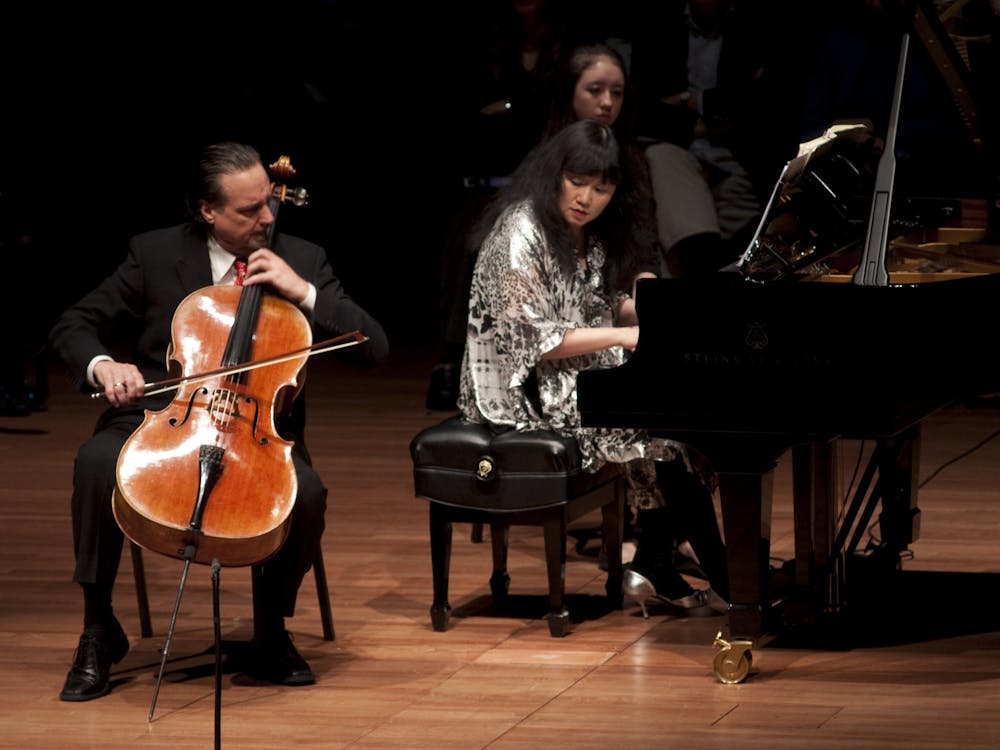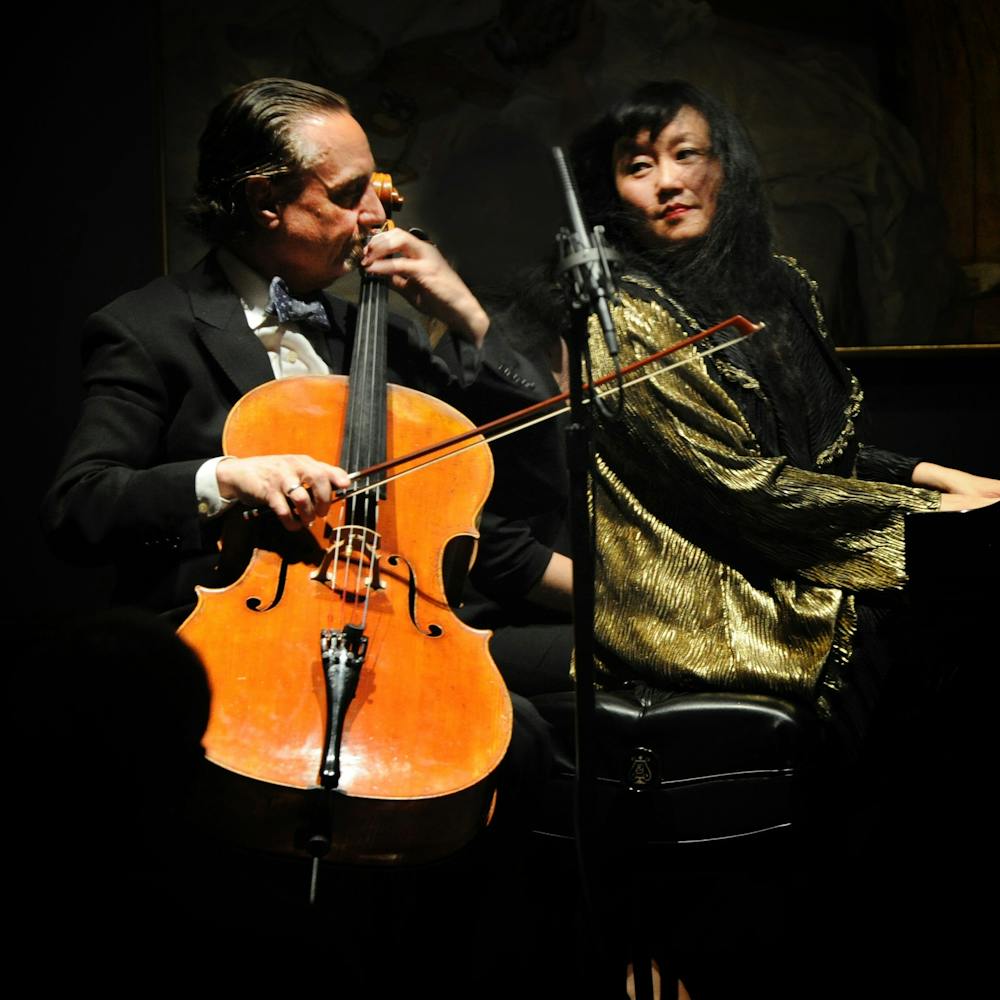Cellist David Finckel and pianist Wu Han visited Durham and the Baldwin Auditorium Nov. 18 for the second time in as many years. This performance was unique in its choice of pieces. The duet performed a selection of Beethoven's works — the first pieces of Beethoven that Baldwin Auditorium had heard since 2020, the 250th anniversary of Beethoven’s birth.
Finckel and Han have been married for 39 years. In that time, they have created artist-controlled recording label ArtistLed, served as the Chamber Music Society of Lincoln Center’s Artistic Directors, founded the Silicon Valley’s Music@Menlo festival, served as artistic advisors and taught at multiple universities. This cosmopolitan love of and engagement with classical music was obvious in their performance.
The event began with short introductions by John Brown Jr., Professor of the Practice of Music and Vice Provost for the Arts, and Dr. George Gopen, Professor of the Practice Emeritus of English and Director of the Chamber Arts Advisory Board.
Then Han came on stage and introduced the first two pieces: Beethoven’s Sonata no. 1 in F Major, Op. 5 No. 1 and Beethoven’s Sonata no.2 in g minor, Op. 5. Han briefly told the tale of Beethoven’s early career travels, from his public debut in Vienna in 1795 to his first European tour in 1796. That tour is where these pieces were first performed — for their dedicatee Frederick Wilhelm, King in Prussia and a noted cello enthusiast. She described Beethoven’s desire to appease and impress Wilhelm with a cello sonata — something his peers Haydn and Mozart never composed — and his stochastic start to the first sonata that loops, builds and forces dialogue between the cello and piano. Both sonatas have attention-grabbing pauses followed by jolting continuations of the performance. Breaking through starts and stops and cello-piano conversation, the conclusion of the sonatas is perfectly described by the program as “joyful wildness.”

After the intermission, the performance and introduction stayed within the mental setting of Berlin and Beethoven’s early years for 12 Variations in G Major. Han’s introduction to the piece described the final shift in time to his Heroic Period, characterized by longer pieces and leading to some of his most famous pieces. 12 Variations in G Major was an homage to Handel and possibly, through its title, “See, the conquering hero comes,” Wilhelm. It flowed, then crackled, then flowed again. The most accessible and varied — for a layman — of the pieces, it was a wonderful conclusion of this period and lead-in to the finale sonata.
Sonata No. 3 in A major, Op. 69 concluded the performance in a striking contrast — in both form and intention — to the three preceding pieces. Rather than King Wilhelm, this piece was dedicated to Baron Ignaz von Gleichenstein — Beethoven’s friend, advisor and cellist — in a presumed “thank you” for helping secure funds to keep Beethoven in Vienna. As described by both Han and the existing literature on Beethoven’s Heroic period, the third sonata was the most emotionally deep and complicated of the night—a contemplative note to end a joyous evening.
While the performance was brilliant and astonishing, the personalities of Finckel and Han were the standouts of the night. Their engagement with chamber music through festivals, production companies, performance and teaching was obvious in their treatment of the audience and respect for the performance. Han’s ability to set the scene as she introduced each piece added necessary context and texture. This, combined with their obvious happiness and desire to be in Durham and at Duke, emphasizes the respect that Duke Arts has garnered and the personability of Finckel and Han.
In two shining examples of their grace, between the Adagio and Rondo of the first sonata, a group of audience members mistakenly clapped. To which the duo responded, “I would’ve clapped too.” While many artists could rightfully be pretentious and over-serious about their life's work, they choose to meet the audience where they were. Later, between the first and second sonatas, an audience member was changing seats and they respectfully waited for them to sit down before they began. It was an unnecessary but impressive demonstration of care and conscientiousness.
The Duke Chamber Arts series continues Mar. 1 with the Goldmund Quartet.
Get The Chronicle straight to your inbox
Sign up for our weekly newsletter. Cancel at any time.
Kadin Purath is a Trinity junior and a culture editor for Recess.

